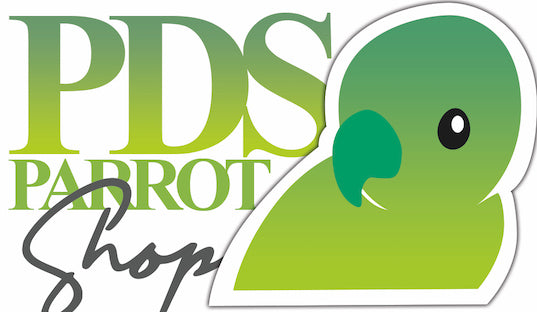
How do I keep my bird entertained?
Share
Keeping your bird entertained is important for their mental and physical well-being. Birds are intelligent and curious creatures that require stimulation to stay happy and healthy. Providing a variety of parrot toys, foraging toys, and swings, can help prevent boredom and encourage natural behaviors like foraging and playing.
Regular interaction with your bird, including talking, singing, and training sessions, strengthens your bond and provides essential social engagement. Additionally, changing the arrangement of their cage and introducing new items can keep their environment interesting and engaging. Ensuring your bird is mentally stimulated and physically active contributes to their overall health and prevents behavioral issues such as feather plucking and excessive screaming.

Why It’s Important to Keep Pet Birds Entertained
In the wild, birds spend their days flying, foraging, problem-solving, and socializing with their flock. In a home environment, these instincts don’t just disappear. If not provided with activities, birds can suffer from boredom and loneliness.
Keeping pet birds entertained helps to:
- Reduce stress and anxiety
- Prevent destructive behavior
- Encourage exercise and natural instincts
- Strengthen the bond between you and your bird
- Improve overall mental and emotional health
Top Ways to Keep Your Pet Birds Entertained
Here are some tips to help you provide stimulation and prevent boredom for your pet bird:
1. Rotate Toys Regularly:
Introduce new toys and rotate them every few days to keep things interesting. This prevents your bird from getting bored with the same toys.
2. Provide Foraging Opportunities:
Use foraging toys or hide treats in various places around the cage to encourage natural foraging behaviors. This stimulates their mind and keeps them active.
3. Interactive Play:
Spend time interacting with your bird daily. This can include talking to them, teaching them tricks, or playing games like peek-a-boo.
4. Offer Chewing Options:
Birds naturally enjoy chewing to keep their beaks healthy. Provide safe chew toys made from bird-safe materials like untreated wood, vegetable-tanned leather, or natural fibers.
5. Create a Play Area:
Set up a bird-safe play gym or play area outside of the cage where your bird can explore, climb, and play under supervision.
6. Variety of Perches:
Offer a variety of perch sizes and textures within the cage to encourage movement and exercise. Natural branches or perches with different diameters can help keep their feet healthy.
7. Visual Stimulation:
Place the cage in a location where your bird can see outside, providing natural light and a view of changing scenery.
8. Music and Sounds:
Play soft music or provide recordings of natural sounds (like gentle rain or bird calls) to create a calming and stimulating environment.
9. Social Interaction:
If possible, provide opportunities for your bird to interact with other birds or pets under supervised and controlled conditions.
10. Training and Enrichment Activities:
Teach your bird new tricks or behaviors using positive reinforcement techniques. Training sessions provide mental stimulation and strengthen your bond with your bird.
11. Monitor Health and Well-being:
Regularly observe your bird's behavior and health. Changes in activity level or behavior could indicate boredom or potential health issues.
Customize Entertainment by Species
Not all birds are the same. A macaw may love destroying big blocks of wood, while a cockatiel might prefer soft paper or mirrors. Observe your bird’s preferences and build a routine around what excites them the most.
Keeping pet birds entertained isn’t just about toys, it’s about creating an enriching lifestyle that mimics their natural behaviors. From interactive play and foraging challenges to music and trick training, there are endless ways to bring joy and stimulation into your bird’s day.
A mentally and physically enriched bird is healthier, happier, and more bonded to their human family. So go ahead, spoil your feathered friend with fun and enriching activities that keep boredom at bay!
More Articles On Bird Care
If you’re building a stimulating cage setup, Bird Toys for Cage breaks down the best toy types for hanging, climbing, shredding, and foraging, helping parrots stay active and mentally engaged throughout the day.
For parrots prone to foot fatigue or gripping stress, benefits of Flat Bird Perches, highlights how flat surfaces allow birds to rest, stretch their toes, and maintain proper foot alignment.
For parrots that thrive on destructive play, Shreddable Bird Toys breaks down the best toy designs for mental stimulation, beak health, and boredom prevention.
Monika Sangar, MSc – Molecular Biology | Avian Nutrition Specialist | Founder: PDSnonprofit | Owner: Pds Parrot Shop
Monika Sangar is a parrot rescuer, bird food chef, and toy designer with over a decade of experience in avian care and nutrition. She is the founder of Prego Dalliance Sanctuary and the author of The Science of Avian Nutrition, a cookbook dedicated to fresh, healthy meals for parrots. Explore more bird care tips and bird toys at PDS Parrot Shop!

